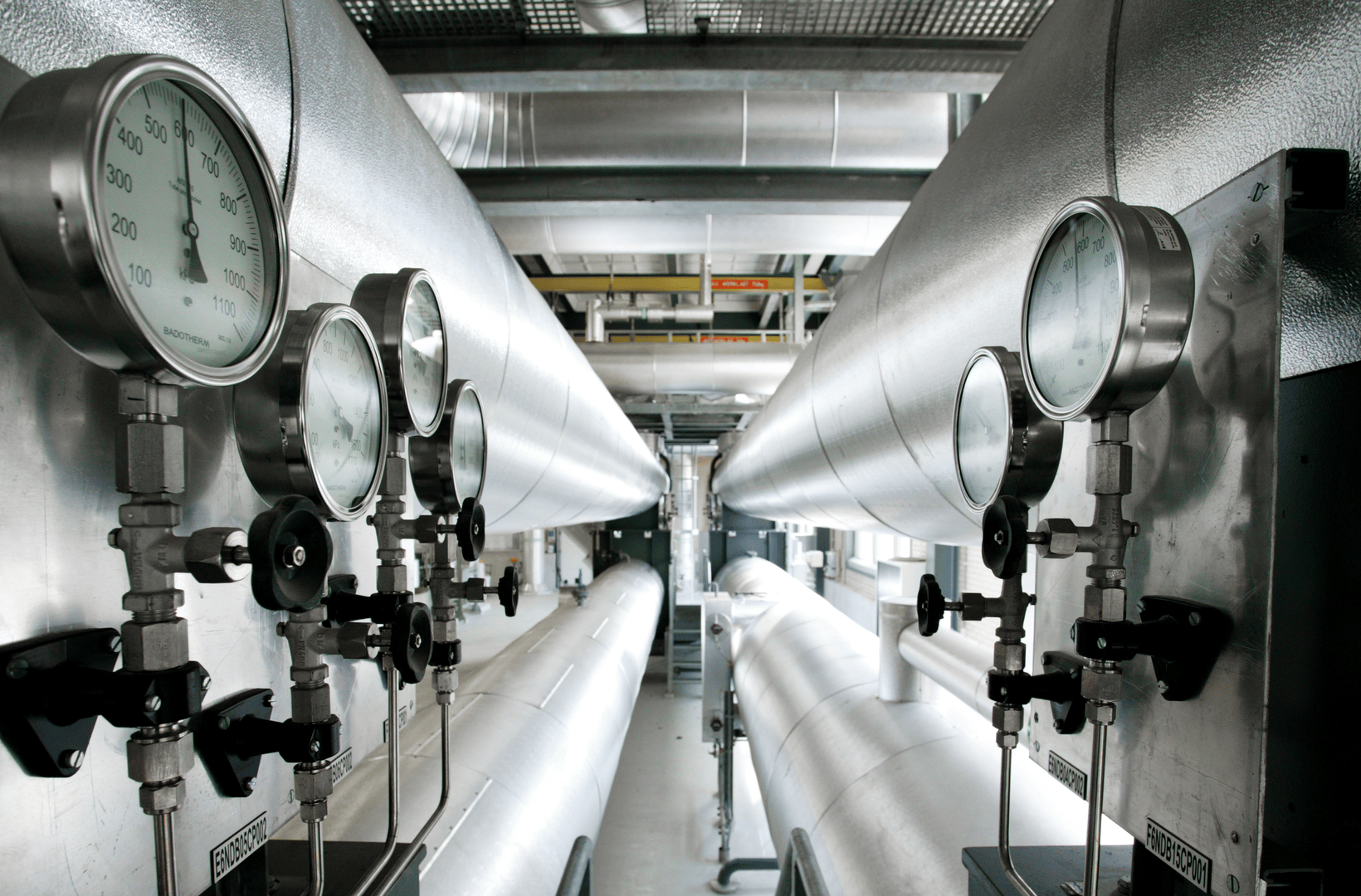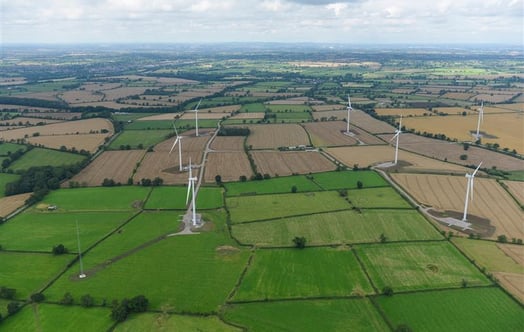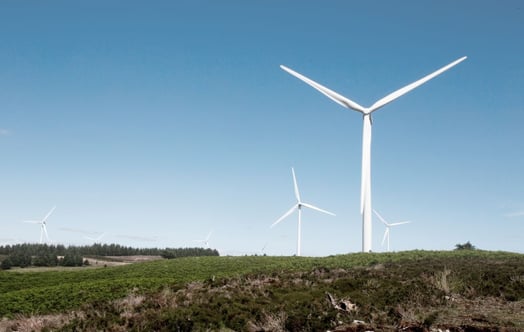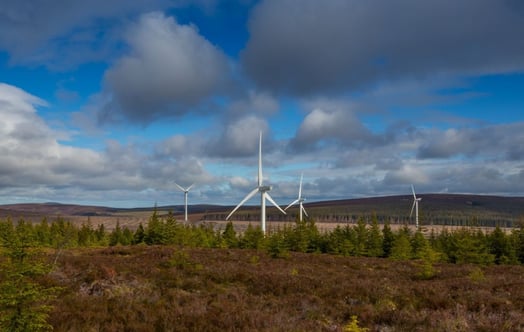
Vattenfall launches ambitious plan to decarbonise heating in Edinburgh and Glasgow
- Ambitious plans unveiled to connect 620,0001 homes to heat networks in Glasgow and Edinburgh by 2050.
- Vattenfall will collaborate with organisations that share their vision for a fossil free future, including Scottish Government, local authorities and energy from waste specialists Viridor.
- Swedish energy and heat provider brings European expertise, already delivering heat to 1.9 million customers on networks in Berlin, Uppsala and Amsterdam.
Today, one of Europe’s leading energy and heat suppliers, Vattenfall, will launch their ambitious plan to decarbonise urban buildings in Edinburgh and Glasgow at an exciting event in Glasgow. Vattenfall plans to work with their partner Midlothian Council and local authorities in both cities, along with generators of heat, to then distribute clean heat to domestic and commercial customers in both cities.
Vattenfall’s launch follows the Scottish Government’s announcement of the £300 million Heat Networks Fund and today’s announcement of the Heat Network Action Plan (HNAP). These announcements show just how crucial large-scale plans for district heating are to cities like Glasgow.

In Glasgow, the City Council has already set out plans to grow the number and scale of heat networks that currently exist. District heating is the obvious and best way to decarbonise heat in urban environments and can work with a variety of heat sources. Vattenfall plans to build the heat network in phases, working multi-laterally through collaborations with heat suppliers and customers, connecting existing and new homes and businesses to low and zero-carbon heat sources.
Vattenfall already has a collaboration agreement in place with energy from waste specialists Viridor, and the possibility of harnessing heat from Viridor’s Glasgow Recycling and Renewable Energy Centre (GRREC) is being explored. The Glasgow network aims to serve the equivalent of 450,0002 homes by 2050.
By 2050, the networks could connect to many thousands of customers in the City Centre, as well as the wider Greater Glasgow region including, West Dunbartonshire, East Dunbartonshire, Inverclyde, Renfrewshire, East Renfrewshire, North Lanarkshire and South Lanarkshire.

Vattenfall has entered a Joint Venture with Midlothian Council to deliver low-carbon energy projects across the Midlothian Council area. The first project will be a low-carbon district heating network supplying heat from FCC Environment’s Millerhill Recycling and Energy Recovery Centre to the new Shawfair Town in the north of the council area, on the outskirts of Edinburgh. The expansion of an Edinburgh network aims to serve the equivalent of 170,0003 homes by 2050. The Shawfair development will benefit from up to £7.3m from the Scottish Government’s Low Carbon Infrastructure Transformation Project (LCITP), which is part funded by the European Regional Development Fund.
Vattenfall brings 130 years of heat network experience to the UK. The installation of heat networks at the scale of the ambitions in Glasgow and Edinburgh has been seen over a 25-year timescale in Amsterdam.
While the UK Government has a goal to reach net zero emissions by 2050, Scotland’s targets are even more ambitious, with the aim of reaching net zero emissions by 20454. At present, 86%5 of Scottish households rely on fossil fuels to keep warm, highlighting the scale of the heat transition.
Vattenfall’s modelling suggests the heat networks in Glasgow and Edinburgh could reduce emissions by up to 90%6 in comparison to individual gas boilers fitted in every home. Over a 20-year period, a heat network serving the equivalent of 620,000 homes could save 900,0007 tonnes of CO2 emissions when compared to a current gas boiler solution, the equivalent of taking 4 million cars off the road. To build these heat networks will mean an investment of up to £2 billion8 and the creation of up to 9009 jobs through direct employment and the wider supply chain between now and 2050.
Paul Steen, Head of Business Development North at Vattenfall Heat UK, said:
“District heating is the obvious choice for decarbonising Scotland’s cities and requires no technological leaps or innovations, it just requires ambition, scale and collaboration. Vattenfall’s European expertise, delivering heat to 1.9 million customers in Berlin, Uppsala and Amsterdam, proves that these types of projects are possible.
“By collaborating with like-minded organisations, we can use the abundance of heat sources already present in Glasgow and Edinburgh to fuel the heat networks, making district heating the most cost-effective way to decarbonise heat in urban areas."
Zero Carbon Buildings Minister Patrick Harvie said:
“Heat networks will play an increasingly important role over the coming years in cutting carbon emissions and making sure our homes are warmer, greener and cheaper to run.
“The Scottish Government is making up to £300 million of new funding available to support the development and roll out of zero emission heat networks, and today we published our Heat Networks Delivery Plan which sets out how the Heat Networks (Scotland) Act and our wider policy and programmes contribute to increasing heat networks in Scotland.
“Public and private investment, innovation and collaboration will be vital in seizing the many benefits that heat networks bring, and I welcome these plans from Vattenfall to help drive significant expansion in networks across Edinburgh and Glasgow.”
Richard Belfield, Business Development Director at Viridor, said:
“Viridor is determined to play a leading role in transforming the waste sector to create a net zero, circular economy by 2050. That is why we have a collaboration across the UK with Vattenfall to connect our resources and deliver low-carbon heat to communities. Our commitment is to be net zero across all our operations by 2040 and be a net negative emissions business by 2045. In Glasgow, our partnership with Glasgow City Council at the Glasgow Recycling and Renewable Energy Centre has already created over 250 new jobs, including 20 apprenticeships and 217 work experience placements, supporting local social enterprises, and small and medium sized businesses throughout the build programme and beyond.”
Susan Aitken, Leader of Glasgow City Council said:
“Glasgow City Council is committed to taking action to deal with the climate and ecological emergency that is such an immediate threat to our citizens and our planet. We have published our Glasgow Climate Plan and set a target of making the city Net Zero Carbon by 2030. The decarbonisation of heat is a crucial component of achieving this target and we welcome the chance to learn from organisations experienced in the delivery of heat networks to help shape our plans for growing heat networks in Glasgow.”
Gordon Pollock, Project Director, Midlothian Council and Director of Midlothian Energy Ltd, said:
“Midlothian Council, like other Scottish local authorities has declared a climate emergency. The Council in recognising the enormous scale of the challenge, decided to appoint long term energy partner, Vattenfall Heat UK. The Council will benefit from the vast experience that Vattenfall have in successfully delivering heat networks across Europe. Having established Midlothian Energy Limited in 2020, we are very focused on delivering our first 5-year business plan, initially focussed on building out a regional heat network. We are grateful to the Scottish Government LCITP fund, without which we would have been unable to kick start this exiting venture.”
Notes to editors:
References:
- The networks aim to serve the equivalent of 620,000 homes by 2050 - Vattenfall internal modelling estimate of the number of connectible buildings to heat networks.
- The Glasgow network aims to serve the equivalent of 450,000 homes by 2050 - Vattenfall internal modelling estimate of the number of connectible buildings to heat networks.
- The Edinburgh network aims to serve the equivalent of 170,000 homes by 2050 - Vattenfall internal modelling estimate of the number of connectible buildings to heat networks.
- Scotland’s targets of reaching net zero emissions by 2045 - Reducing greenhouse gas emissions - Climate change - gov.scot (www.gov.scot).
- 86% of Scottish households rely on fossil fuels to keep warm - https://es.catapult.org.uk/report/how-to-heat-scotlands-homes/.
- Vattenfall’s modelling suggests the heat networks could reduce emissions by up to 90% in comparison to individual gas boilers fitted - Vattenfall internal carbon intensity modelling.
- Saving of 900,000 tonnes of CO2 emissions when compared to a current gas boiler solution - Vattenfall internal carbon intensity modelling
- Investment of £2 billion required by 2050 - Vattenfall internal modelling estimate of the investment required to install a heat network at this scale.
- 900 jobs through direct employment and the wider supply chain between now and 2050 - Vattenfall internal estimate of the direct economic impact of investment and operation of district heating infrastructure.
Scottish Government £300M Heat Networks Fund - Heat Network Fund: application guidance - gov.scot (www.gov.scot)
Heat Network Delivery Plan - Heat Networks Delivery Plan (www.gov.scot)



